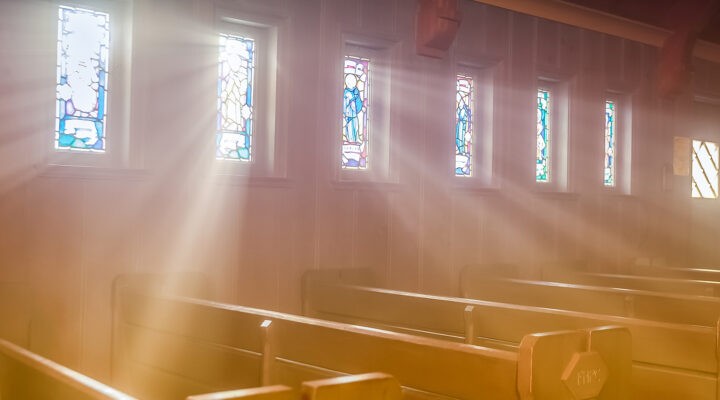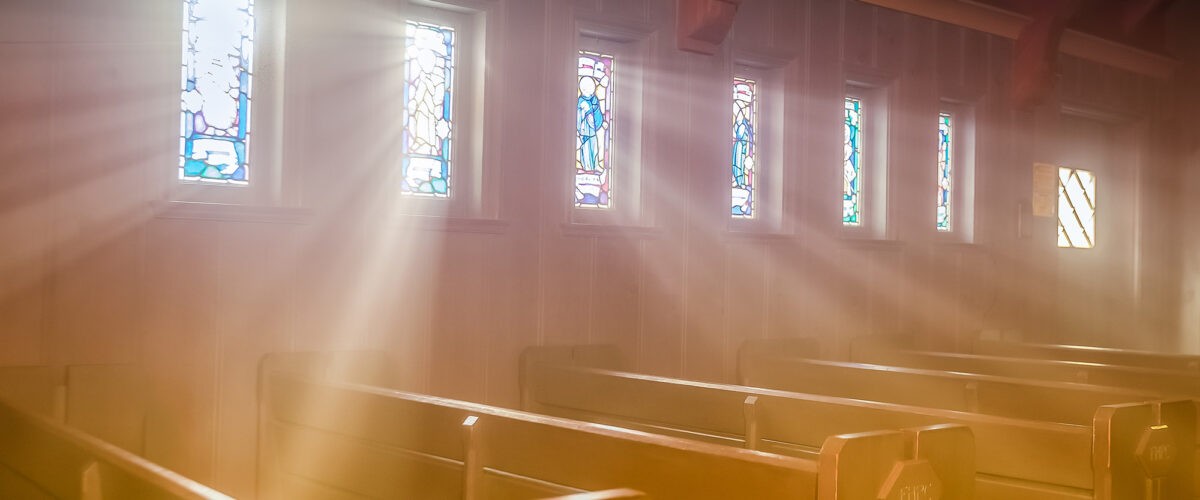We have entered Eastertide, the liturgical season beginning with Easter and ending 50 days later on Pentecost (also known as Whitsunday). The formulation of this season parallels the period in Judaism between the first day of Pesach (Passover, marking their liberation from Egypt) and the feast of Shavu’ot (Feast of Weeks, both a harvest festival and a commemoration of the giving of the Torah at Mount Sinai).
Parallel resurrection moments, setting the stage for resulting resurrection movements.
Freedom’s announcement is not a spectator sport. Neither the parting of the sea, nor the rolling of tombstone, is part of some kind of divine service economy. God is not a personal attendant, working for tips (piety). God is the Ringleader, the Chief Inciter of the rebellion against the reign of every cruel and merciless force.

Ken Sehested
There is no “resurrection by proxy,” as Vincent Harding has said. It’s a bet your assets kind of involvement. The baptismal waters are troubled and troublesome.
Eastertide was the period when the early followers of Jesus were forced to recalibrate their messianic expectations. Good Friday’s execution was a crushing blow to their hopes. Despite Jesus’ repeated teachings to the contrary, the apostles still presumed Jesus would be the leader of a divinely inaugurated coup d’état that would expel Roman occupiers and restore King David’s regal dynasty.
Hadn’t the Hebrew prophets predicted this messianic outcome — confirmed in Matthew’s and Luke’s birth narratives?
We, even today, are not exempt from the same kind of disorientation caused by the resurrection’s disarranging announcement.
Eastertide as cognitive dissonance
Eastertide is the season for Jesus’ followers to undergo a complete reimagining of the nature of power. It demands a decolonization of the mind and a regeneration of the heart: conception, conviction and practice operating in tandem, each shaping, correcting and reinforcing the other. A certain deconstruction is at work, and it is often discomfiting, for we are being stretched and refitted to become suitable couriers of the news that is disturbing before it is good.
“Eastertide is the season for Jesus’ followers to undergo a complete reimagining of the nature of power.”
Near the very end of Luke’s Gospel, the text records this odd command from Jesus as he prepares to end his resurrectionary appearances to ascend to the Abba: “I am going to send you what my Father has promised (the paraclete or Holy Spirit); but stay in the city until you have been clothed with power from on high.”
Before the community of the resurrection could mobilize, before its power could be unleashed, it first had to undergo formation and instruction — something parallel to the Israelites’ confused wandering prior to receiving the Torah at Mt. Sinai.
Why? Because cognitive dissonance — the attempt to hold on to two opposing ideas at the same time — is a very real thing. One conviction has your heart (which means, in biblical terms, your pocketbook); the other is just for public relations.
Former Senate Majority Leader Trent Lott, a faithful, lifetime Southern Baptist, was asked in 2004 about the breaking news of the brutal torturing of Arab prisoners at Abu Ghraib prison. He responded, “This is not Sunday school. … This is rough stuff.” The Jesus story has no real traction in public life.
Two decades before, in the U.S. Supreme Court decision Lynch v. Donnelly, Chief Justice Warren Burger ruled that a city-sponsored Nativity display is “a passive symbol,” that it “engenders a friendly community spirit” and “serves the commercial interests” of merchants.
Eastertide as reorientation
In “the world” (the disordered condition of creation), we are constantly being offered counterfeit assurances: You get what you deserve; you are what you own; only the strong survive; eat or be eaten. The assertions of the Beatitudes are contradicted at every turn: the poor are shamed; the mourners are taunted; the meek are mocked; the merciful are victimized; the peacemakers are disparaged.
The thing that must be rectified before power “from on high” (not susceptible to manipulative human authority) can be granted, the discrepancy between what our eyes have been trained to see, our ears schooled to hear, must be retrained. In other words, we have been brainwashed.
Or to use another metaphor: Before we can comprehend the beatific vision by which we have been called, the warped neural pathways in our brains need to be disentangled in order to see where the Spirit is breaking out, to hear what the Spirit’s is declaring, to understand our marching orders.
“You can’t depend on your eyes when your imagination is out of focus.”
As Mark Twain put it, “You can’t depend on your eyes when your imagination is out of focus.”
Like all the church’s liturgical seasons, Eastertide is not one and done. As with the formation of our faith, we learn bit by bit, by repetitive effort, a process that is not judged by achievement but by perseverance.
In Luke’s story, after Jesus was baptized, the Divine Breath descended on him “as a dove” and as a “voice from heaven.” Then the text offers a lengthy genealogy, tracing Jesus’ lineage and career back to creation’s story of origin. In his storyline, something distinctive is occurring; but it is not novel. The narrative traces back to “in the beginning,” when the first Breath of God “swept over the face of the waters.”
After that came the desert’s confirmation class, where assumptions about power were clarified. The wilderness was his catechesis. Not until those lessons were learned was Jesus’ anointment completed with his being “filled with the power of the Spirit” — a power contradicting every earthly supremacist claim.
That indwelling led to Jesus’ inaugural sermon. The congregation’s initial response was pride over a hometown boy made good, who recited venerated lines from the revered prophet Isaiah. In his commentary, however — in bringing the text to bear on history’s details — Jesus veered from assumed Israel-first piety by telling a story of God’s privileging the needs of those in “shithole” countries. Hearing that, the crowd’s mood got ugly, and they were “filled with rage.” It was an affront — then as now — to hear that being chosen does not embargo heaven’s affection.
Pentecostal preparation
Eastertide is the season when we learn to tell a different story about a different configuration of power, inside out, upside down, the envisioning of a commonwealth that flips the script of every predatory claim of entitlement. Jesus’ lordship upends and overthrows lording of every sort.
“Jesus’ lordship upends and overthrows lording of every sort.”
Pentecost is when we take Easter to the streets, and the streets are still mean. But the apostles’ power — with the granting of fiery nerve and inspired breath upon earth’s turbid disorder — inaugurates the Spirit’s incursion against every affront to creation’s intent and the beloved community’s surety.
Eastertide’s preparation is for the Spirit’s outing of the church at Pentecost. There will be scandal; indeed the world’s current innkeepers will declare “no room” and will demand that we keep our noses out of its business.
The way of the Cross still leads home, sisters and brothers; but we are not left bereft. Attend to Eastertide’s tutoring. The tomb’s seal has been broken. The Comforter is present to sustain, to animate, to inform and to incite the little flock of Jesus — not for exclusionary claim to the Beloved’s deference but for extravagant announcement of Mercy’s mending power, restoring the maimed and shamed (and all who find no “home” in the world’s present ordering), readying the table of refuge and bounty for the age to come.
Alas, sorrow’s governance remains. In the ordinary days that follow in the wake of Pentecost’s tide, the names of additional martyrs will be added to our All Saints Day recitals. The rule of terror continues, by state and statute and commercial decree and collateral damage. Zion’s true songs of praise are heard as threat since angels’ good tidings and joy’s insurgence cannot be brokered or patented or rationed.
“The Spirit has smuggled provisions through enemy lines.”
If left to our own resolve, the weight of woe would overwhelm even the strongest. But the Spirit has smuggled provisions through enemy lines. The attentive will spot clues of their whereabouts. The virtue of hope and the victual of sustenance have been readied. The supply chain, though constantly harried, has not been broken.
The facts on the ground do not have the last word, although this cannot be verified by existing calculus. Cheating death is what we do — not from moral heroism but because joy’s embrace is more resilient than grief’s restraint.
In the words of Wendell Berry: Be joyful, friends, although you have considered the facts. Come out. Be seen. Pitch your tent in compassionate proximity to the disdained. In learning their names you will discover your own; and from their voices discern what needs doing.
Ken Sehested is curator of prayerandpolitiks.org, an online journal at the intersection of spiritual formation and prophetic action.
Related articles:
10 life lessons from Holy Week | Opinion by Barry Howard
To live into Easter, we need to keep writing a new song | Opinion by Laura Mayo
We need to get our theology straight: It was not God’s intent that Jesus die | Opinion by Russ Dean


